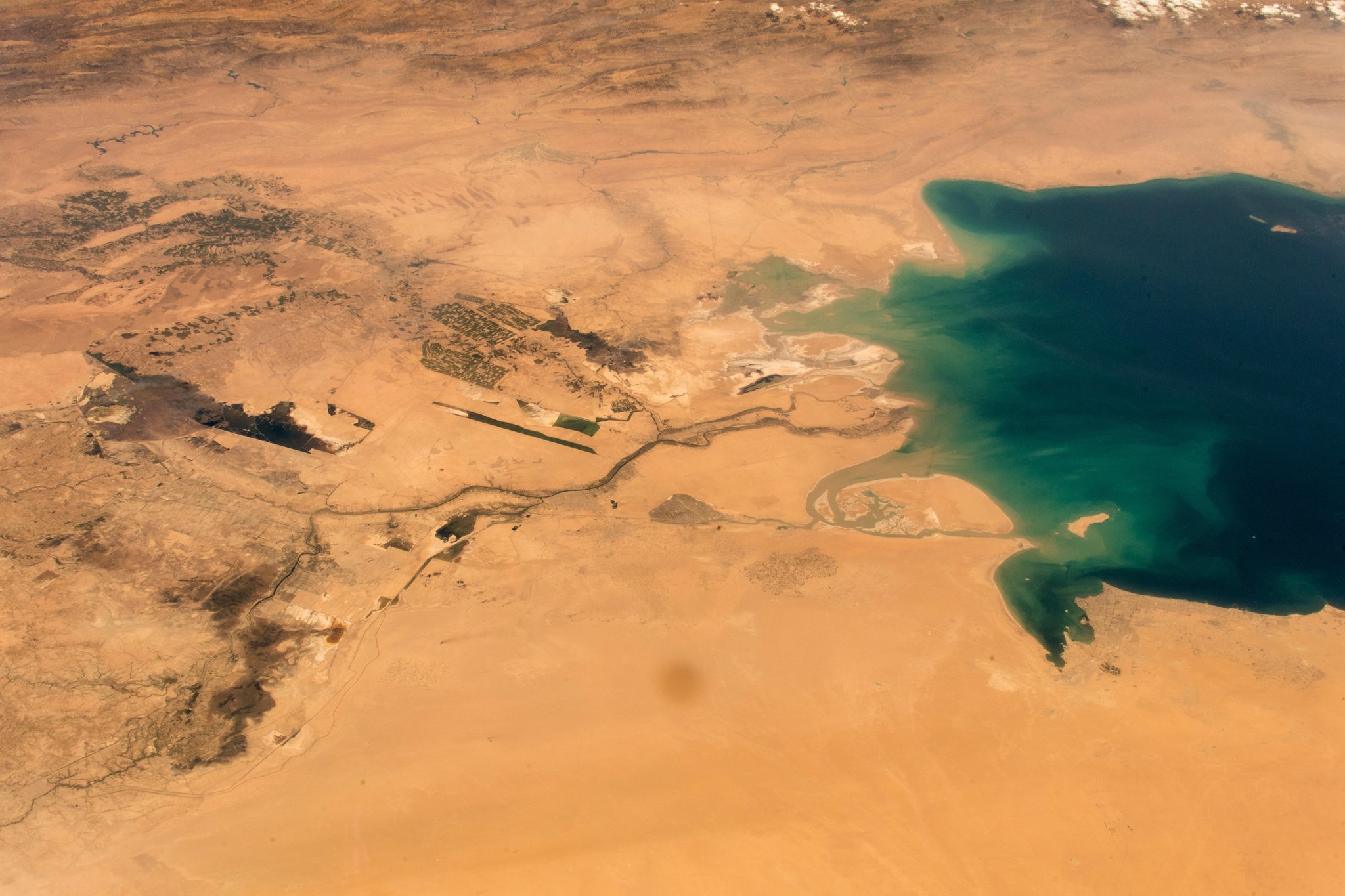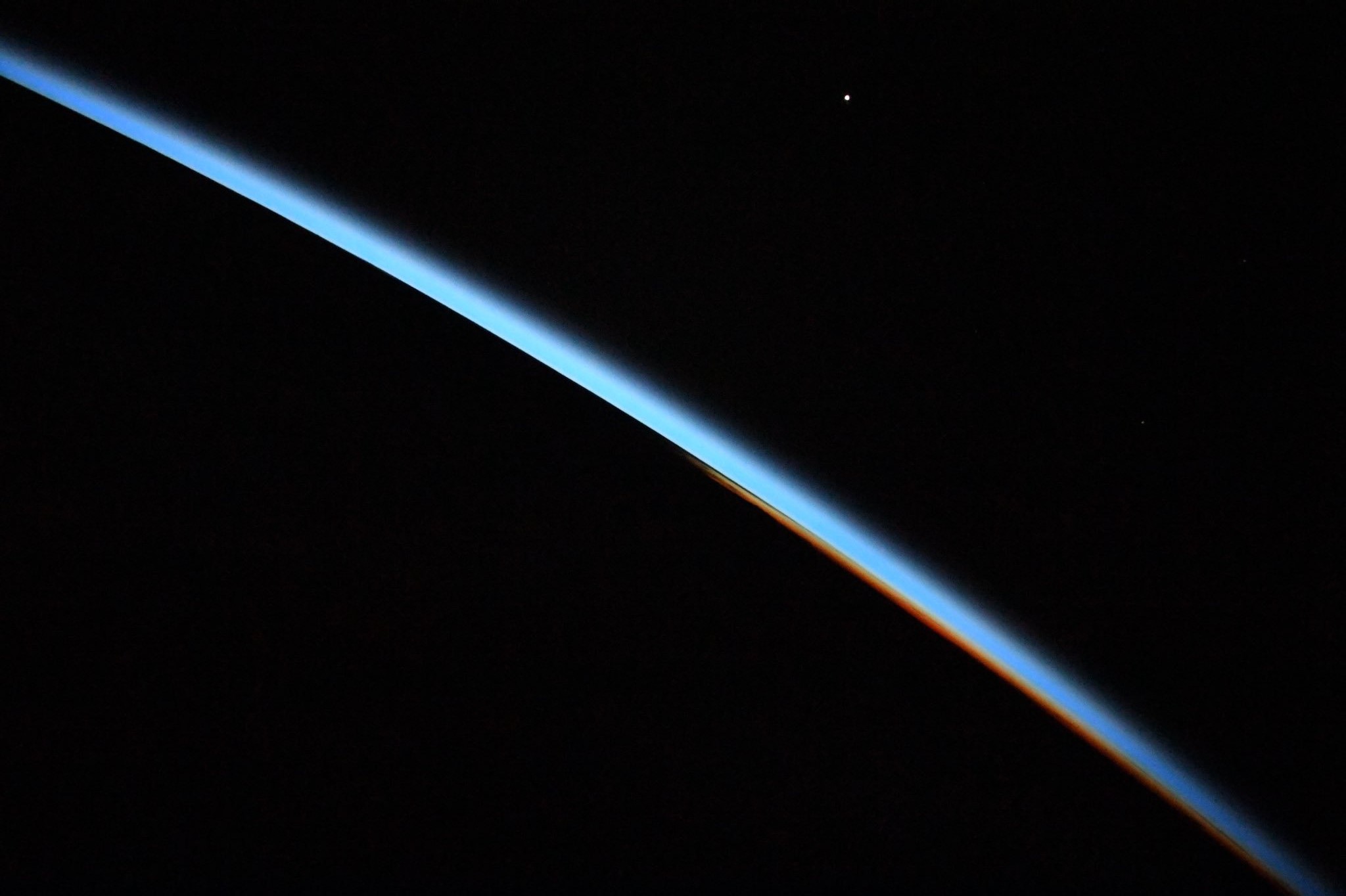[:ja]アレックス・ゲルスト宇宙飛行士がISSから撮影したクウェート市です。

クウェートは、国土のほぼ全てが砂漠気候であり、山地・丘陵などはなく、平地です。夏季の4 – 10月は厳しい暑さとなり、さらにほとんど降水もないため、焼け付くような天気と猛烈な砂嵐が続きます。石油が主要産業であり、界第4位の埋蔵量があり、2016年の生産量は300万バレル/日を超えます。オイルマネーによって、産業基盤の整備や福祉・教育制度の充実を図っており、ほとんどの国民は国家公務員・国営企業の社員として働いています。石油収入を利用した金融立国や産業の多角化を目指して外国からの投融資環境を整備したため莫大な雇用が創出され、不足している労働力は周辺外国人が補っています。
地上の様子はこちらです。

参考文献: Alex Gerst’s Tweet
地球俯瞰画像を見る: LiVEARTH
[Earthview Wonders] No.791: Venus Rise At Sunrise
Astronaut Christina Koch captured from ISS Venus Rise At Sunrise.

Venus is the second planet from the Sun, orbiting it every 224.7 Earth days, and rotates in the opposite direction to most other planets (meaning the Sun rises in the west and sets in the east). It is the second-brightest natural object in the night sky after the Moon, visible to the naked eye in broad daylight. Venus is a terrestrial planet and is sometimes called Earth’s “sister planet” because of their similar size, mass, proximity to the Sun, and bulk composition. It is radically different from Earth in other respects. It has the densest atmosphere of the four terrestrial planets, consisting of more than 96% carbon dioxide.
Reference: Christina Koch’s Tweet
See earthview photo gallery: LiVEARTH
Astronaut Alex Gerst captured from ISS Kuwait.

Kuwait is in the northern edge of Eastern Arabia at the tip of the Persian Gulf, it shares borders with Iraq and Saudi Arabia. Oil reserves were discovered in commercial quantities in 1938, and today Kuwait has a high-income economy backed by the world’s sixth largest oil reserves. Summers in Kuwait are some of the hottest on earth. The highest recorded temperature was 53.6°C, which is the highest temperature recorded in Asia.
The local scenery on the ground is as follows.

Reference: Alex Gerst’s Tweet
See earthview photo gallery: LiVEARTH[:en][Earthview Wonders] No.791: Venus Rise At Sunrise
Astronaut Christina Koch captured from ISS Venus Rise At Sunrise.

Venus is the second planet from the Sun, orbiting it every 224.7 Earth days, and rotates in the opposite direction to most other planets (meaning the Sun rises in the west and sets in the east). It is the second-brightest natural object in the night sky after the Moon, visible to the naked eye in broad daylight. Venus is a terrestrial planet and is sometimes called Earth’s “sister planet” because of their similar size, mass, proximity to the Sun, and bulk composition. It is radically different from Earth in other respects. It has the densest atmosphere of the four terrestrial planets, consisting of more than 96% carbon dioxide.
Reference: Christina Koch’s Tweet
See earthview photo gallery: LiVEARTH
Astronaut Alex Gerst captured from ISS Kuwait.

Kuwait is in the northern edge of Eastern Arabia at the tip of the Persian Gulf, it shares borders with Iraq and Saudi Arabia. Oil reserves were discovered in commercial quantities in 1938, and today Kuwait has a high-income economy backed by the world’s sixth largest oil reserves. Summers in Kuwait are some of the hottest on earth. The highest recorded temperature was 53.6°C, which is the highest temperature recorded in Asia.
The local scenery on the ground is as follows.

Reference: Alex Gerst’s Tweet
See earthview photo gallery: LiVEARTH[:]